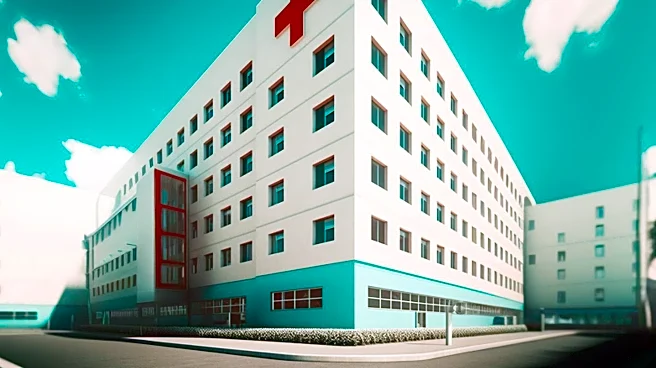What's Happening?
Soroka Medical Center in Be'er Sheva has been recognized by the Annals of the American Thoracic Society (ATS) for a groundbreaking study on asthma. Led by Dr. Guy Hazan, the research identifies a link between Transient Tachypnea of the Newborn (TTN) and increased asthma risk in children. TTN, a condition causing temporary breathing difficulties in newborns, was previously considered harmless. However, Hazan's team found that full-term babies with TTN have a significantly higher risk of developing asthma by age six. The study utilized data from Clalit Health Services' national database and was conducted amid challenging circumstances, including missile strikes on the hospital.
Why It's Important?
The study's findings have significant implications for pediatric healthcare, particularly in understanding early respiratory health. By identifying TTN as a marker for potential asthma development, healthcare providers can better monitor and manage respiratory health in children. This research offers a new perspective on lung development issues, potentially leading to improved diagnostic and treatment strategies for asthma. The recognition by ATS underscores the importance of the study in advancing medical knowledge and highlights Soroka Medical Center's resilience and commitment to research despite external challenges.
What's Next?
The study suggests that TTN could be used as a marker for identifying children at risk of developing asthma, prompting closer monitoring by pediatricians. This could lead to earlier interventions and better management of asthma symptoms, improving long-term health outcomes for affected children. Further research may explore additional markers and mechanisms to enhance understanding of asthma's origins and development, potentially influencing future healthcare policies and practices.
Beyond the Headlines
The study raises ethical considerations regarding the monitoring and treatment of newborns with TTN. It challenges existing perceptions of TTN as a benign condition, suggesting a need for revised clinical guidelines. Additionally, the research highlights the resilience of healthcare institutions like Soroka Medical Center in continuing vital research under adverse conditions, emphasizing the importance of supporting medical research in conflict zones.









